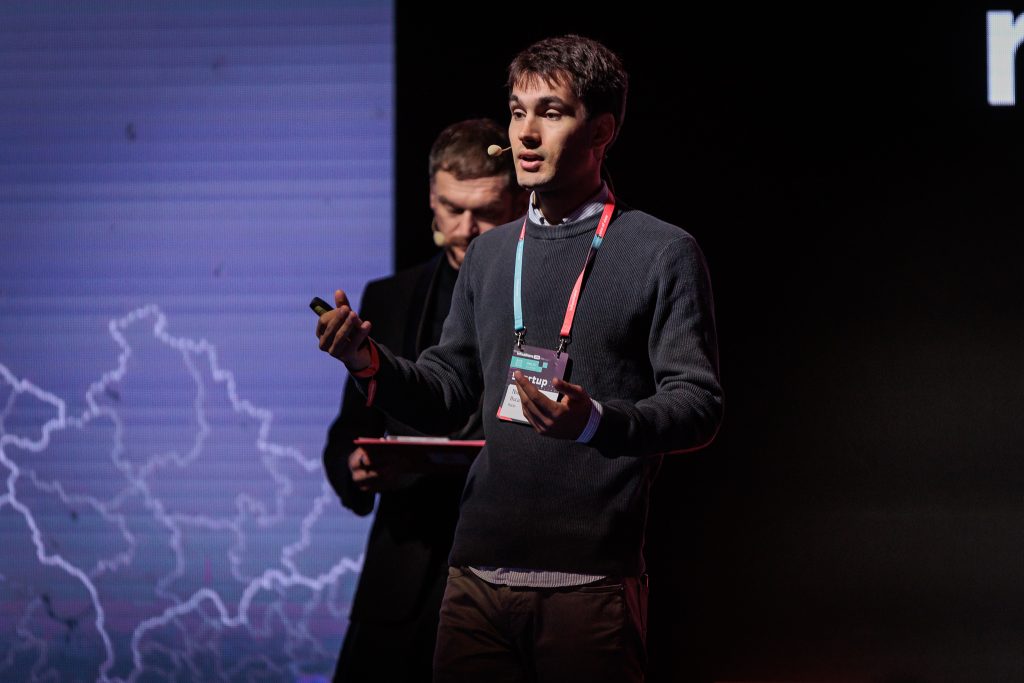From industrial challenges to startup success: Textiloop is closing the loop on textile waste
In an inspiring journey of innovation, Textiloop, founded by Niko Bucalo, took first place and a special prize at the EIT Manufacturing’s Teaching Factories Competition 2024. The competition, which brings together industry and academia to solve real-world industrial challenges, provided the platform for Textiloop to showcase its innovative approach. Niko Bucalo’s journey from the competition to building a successful startup reflects the impact of forward-thinking ideas and resilience, with EIT Manufacturing supporting this transition.
Revolutionising textile waste: the Textiloop mission
Textiloop is transforming the way brands and designers source sustainable materials by embracing a circular economy model. Its platform connects large manufacturers with surplus materials to smaller businesses, reducing waste while cutting costs for small enterprises. By repurposing unused textiles, Textiloop is reshaping the industry, creating a system where waste becomes an opportunity.

Niko Bucalo, Textiloop Founder
We aim to make the textile economy a closed-loop system, where waste is no longer just disposed of but reused.
Niko Bucalo, Textiloop Founder
The platform addresses two major industry challenges: surplus materials piling up at large manufacturers and the high costs smaller companies face when sourcing raw materials.
By matching these resources with businesses in need, Textiloop ensures that valuable materials don’t go to waste, supporting both sustainability and efficiency across the textile supply chain.
The role of Teaching Factories Competition: fuelling innovation and growth
EIT Manufacturing’s Teaching Factories Competition played a pivotal role in Textiloop’s early success, providing essential exposure, feedback and resources. Niko Bucalo credits the competition with the support in refining the platform’s direction and connecting with key industry players.
The Teaching Factories Competition by EIT Manufacturing helped us refine our business model and connect with key partners, which has been instrumental in our growth.
Niko Bucalo, Textiloop Founder
Niko highlights three major ways the competition helped Textiloop:
- Financial boost: “The prize money definitely kickstarted a lot of things,” he says, acknowledging how the funding accelerated their progress.
- Social context: The competitive environment motivated the team. “Being part of a competition pushes you to refine your ideas and meet deadlines, which is essential for growth,” Niko adds.
- Mentorship and support: Guidance from Slavenka Petrak, Professor of the University of Zagreb, Faculty of Textile Technology, and access to industry-standard labs proved invaluable. Insights from industry partners like the Croatian Chamber of Trades and Crafts helped align Textiloop’s platform with the market needs.
Beyond the competition, Niko is actively exploring more opportunities within the EIT Manufacturing ecosystem. These programmes offer additional support to further develop innovative ideas and strengthen the manufacturing landscape, helping startups like Textiloop continue the upward trajectory.
Being part of a competition pushes you to refine your ideas and meet deadlines, which is essential for growth.
Textiloop Founder
Learn more about Textiloop
Set up a company profile and join the Textiloop mission’s to revolutionise textile waste
Get involved in the next Teaching Factories Competition – Apply to the new upcoming edition!
Textiloop’s next goal is to scale its operations across Europe, targeting new markets like Italy, Romania, Serbia and Slovakia. Niko Bucalo remains committed to growing the platform’s user base and promoting sustainable procurement practices in the textile industry.
As Textiloop grows, Niko continues to engage with the broader EIT Manufacturing ecosystem, exploring new programmes and opportunities to further enhance the startup’s journey. With plans to double its platform users, Textiloop is well-positioned for long-term success, aiming to create lasting change by promoting a circular economy in the textile sector.
Success stories like Niko Bucalo’s showcase the transformative potential of the Teaching Factories Competition, which continues to inspire new and dynamic solutions to industrial challenges. Stay tuned for the upcoming call for industry challenges for the Teaching Factories Competition 2025, launching on 16 December, and seize your chance to be part of the next wave of innovators!
Teaching Factories Competition 2025 Call is Open!
Inspire Future Innovators
Calling companies to share manufacturing challenges!

